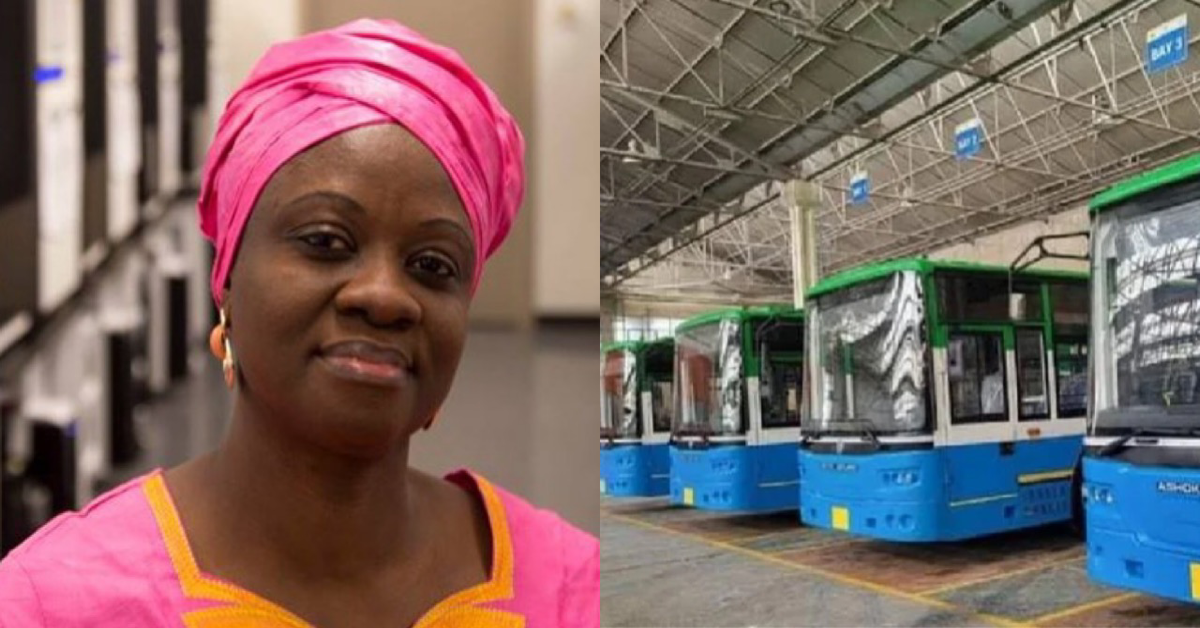Dr. Sylvia Olayinka Blyden, a prominent member of the All People’s Congress (APC) in Sierra Leone, and a renowned journalist has stepped forward to advise the government on a contentious issue affecting the capital city, Freetown.
In a recent statement, Dr. Blyden urged the government to reassess its decision to restrict commercial vehicles from operating on main roads in Freetown, favoring the Waka Fine buses instead.
The decision, which aims to promote the use of Waka Fine buses by limiting the presence of other commercial vehicles, has sparked controversy and drawn criticism from various quarters. Dr. Blyden expressed concern over the move, particularly highlighting its potential impact on commuters and the broader socio-economic landscape of the city.
“Whosoever designed that decision to remove commercial vehicles charging NLe5 for transportation, to allow one that charges NLe10 is a very selfish person,” Dr. Blyden emphasized, echoing the sentiments of many residents affected by the policy. She emphasized her disbelief in the government’s understanding of the decision’s implications and urged authorities to revisit the drawing board to ensure the adoption of a more equitable approach.
The activist’s call for a review stems from her deep commitment to advocating for the welfare and rights of Sierra Leonean citizens, especially those from marginalized communities. With her extensive experience in both journalism and socio-political activism, Dr. Blyden brings a wealth of insight and perspective to the ongoing discourse surrounding public transportation policies in Freetown.
Moreover, Dr. Blyden’s affiliation with the APC adds political weight to her stance, as she represents a significant voice within the opposition party. Her critique of the government’s decision underscores broader concerns regarding governance and policy-making processes, calling for greater transparency, inclusivity, and responsiveness to citizen needs.
The controversy surrounding the restriction of commercial vehicles on main roads in Freetown reflects a broader tension between promoting public transportation initiatives and ensuring accessibility and affordability for all residents. While initiatives like the Waka Fine buses aim to modernize transportation infrastructure and improve service quality, they must be implemented in a manner that does not disproportionately burden low-income individuals or disrupt established modes of transport.
In response to Dr. Blyden’s advocacy and public outcry, government officials are now facing mounting pressure to reconsider their approach and engage in meaningful dialogue with stakeholders to find a balanced solution. The importance of inclusive decision-making processes and the prioritization of citizen welfare cannot be overstated, particularly in a democratic society striving for progress and equitable development.
As discussions continue, it is essential for policymakers to heed the concerns raised by activists like Dr. Sylvia Olayinka Blyden and actively seek input from affected communities to craft policies that reflect the diverse needs and realities of Sierra Leonean citizens. Only through collaborative efforts and a commitment to social justice can the government effectively address the complex challenges facing urban transportation and advance towards a more inclusive and sustainable future for all.












Thank you ma may God continue to bless you
I dove my heart to you madam Blyden.this what we are expecting from the civil society activists and the opposition. Who ever designed that project is an enemy to both the government and the people of this country. I was expecting government to reduce the suffering and burden especially in this trying times.government needs to wake up.